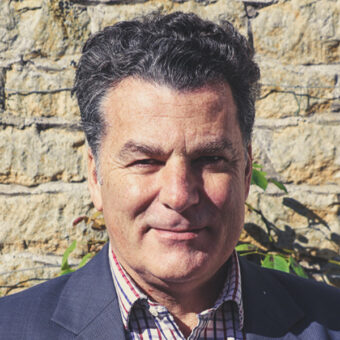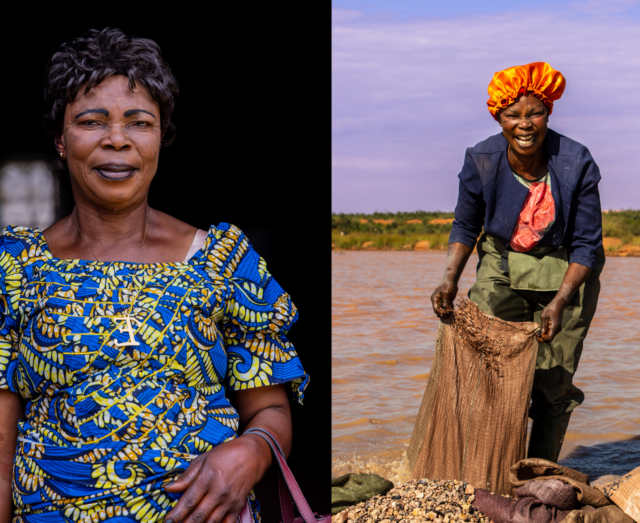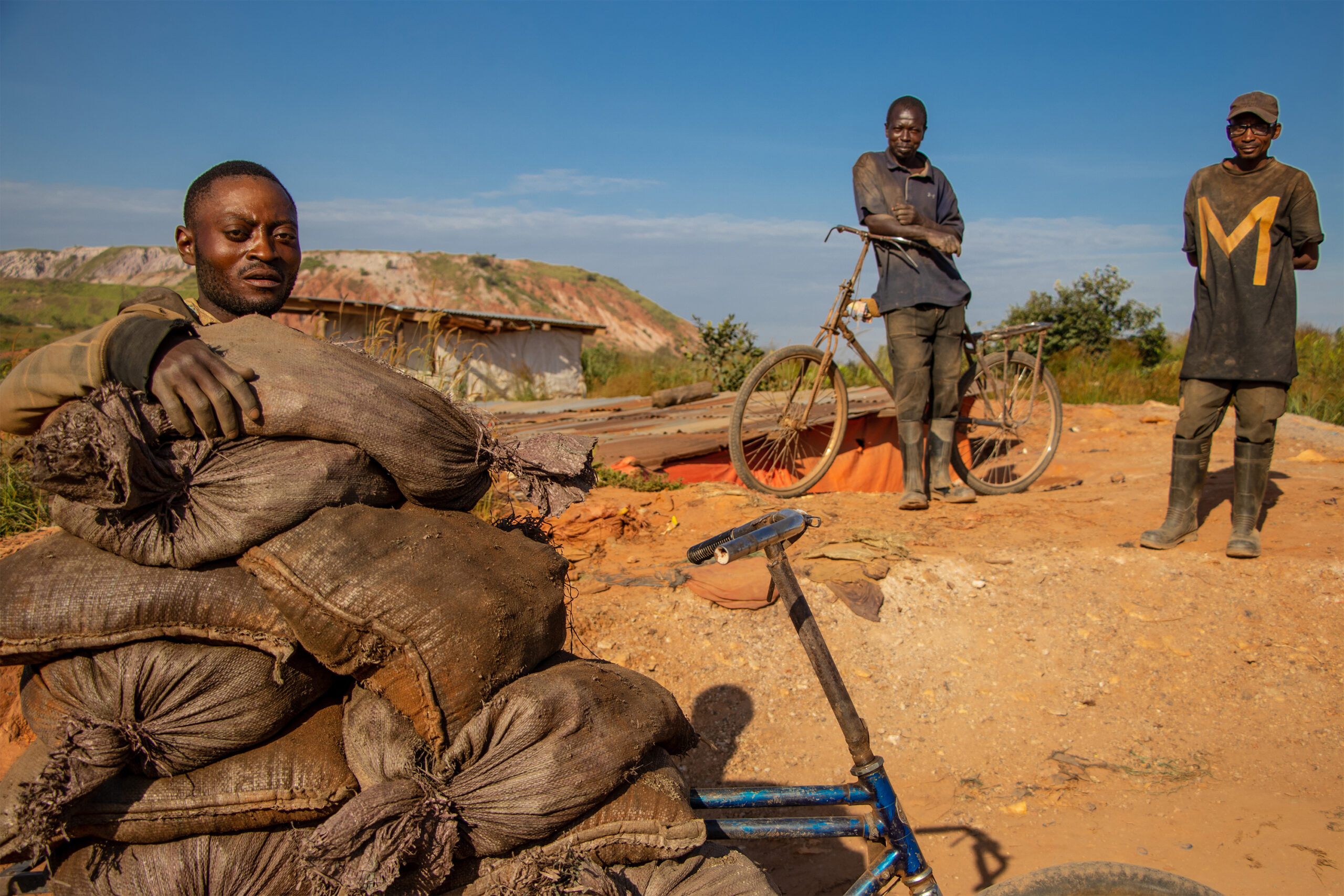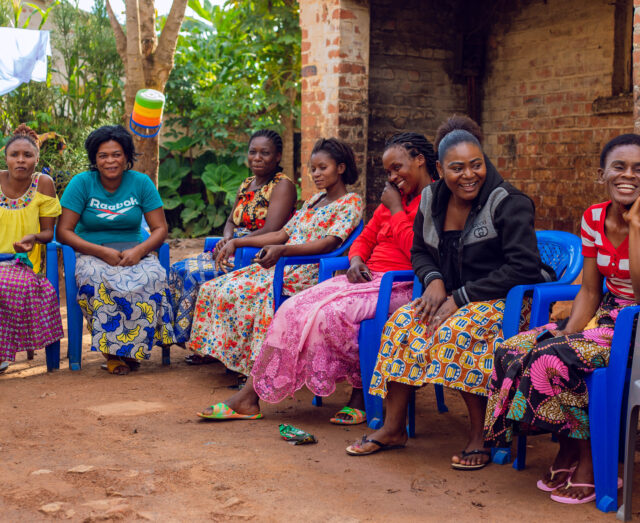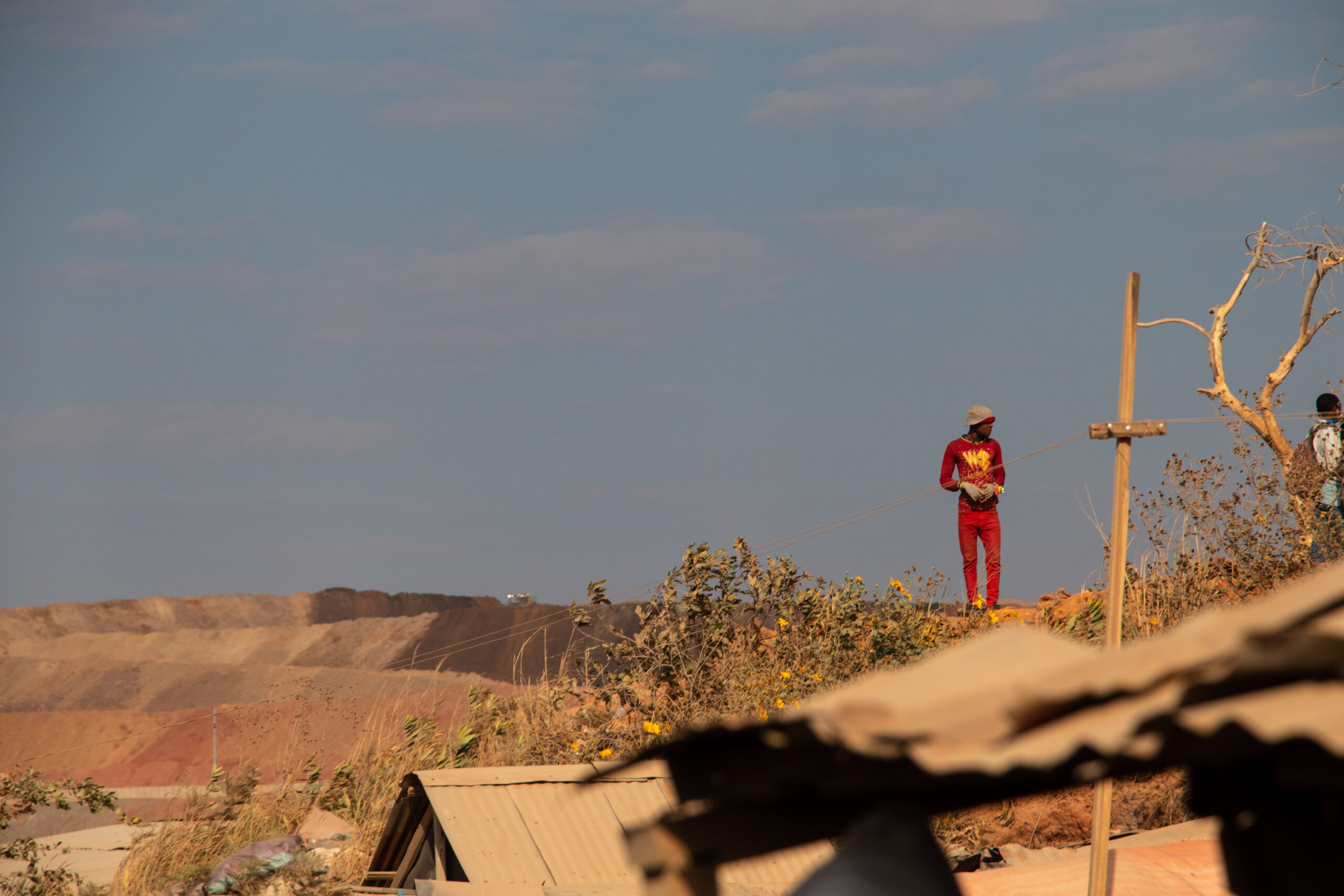Publishing FCA Annual Report 2022
In our commitment to stay transparent about our work in the DR Congo, we are proud to publish the 2022 impact and financial report available here.
Starting with a foreword (below) from the former Chairwoman of the Steering Committee, Angela Jorns and the Executive Director of the FCA, Assheton Stewart Carter, the annual report has, for the first time, published detailed case studies on the flagship programmes run by our local team, in close collaboration with our local and international partners.
Reflecting on 2022: FCA’s Official Impact and Financial Report
2022 was an exceptional year for a myriad of reasons. After the Covid-induced lockdowns of the previous two years, the easing of those restrictions finally allowed the resumption of regular travel to the Democratic Republic of Congo. The global uptake in electric vehicles, a race towards renewable energy and associated energy storage systems present an unstoppable shift towards a greener economy. With this came a global awakening that the move into the green minerals age comes with its own challenges, given that minerals such as cobalt are produced in contexts where the implementation of international standards is challenging and requires engagement and investment to achieve compliance. As local and international media continue to draw attention to these challenges, national governments and all those involved across the supply chain must ensure that the exploitation of minerals benefits, rather than harms, local producers, communities and economies.
Accelerated push for a just energy transition
The push for a greener economy has already resulted in a geopolitical scramble for access to critical minerals to ensure a speedy transition and to meet climate targets. The war in Ukraine has strengthened the public’s demand for an accelerated energy transition, while the subsequent record-high inflation, which has raised fears about a looming recession, has led to corporate budget cuts across the sector. Simultaneously, African governments are increasingly calling for investment into the local economies to rightfully capture a larger percentage of their mineral wealth. These trends are also accompanied by ever-expanding requirements and legislation on due diligence and corporate responsibility in supply chains in a variety of jurisdictions, including the EU and the US.
To truly achieve a just transition, we need to go beyond a compliance approach and engage and invest in responsible and fair supply chains while respecting the rights of everyone along the supply chain, especially upstream mineral producers. The push towards an energy transition should not come at the expense of communities in the Global South, the producers of these critical minerals. A just energy transition requires international collaboration across the supply chain to ensure sustainability and replicability.
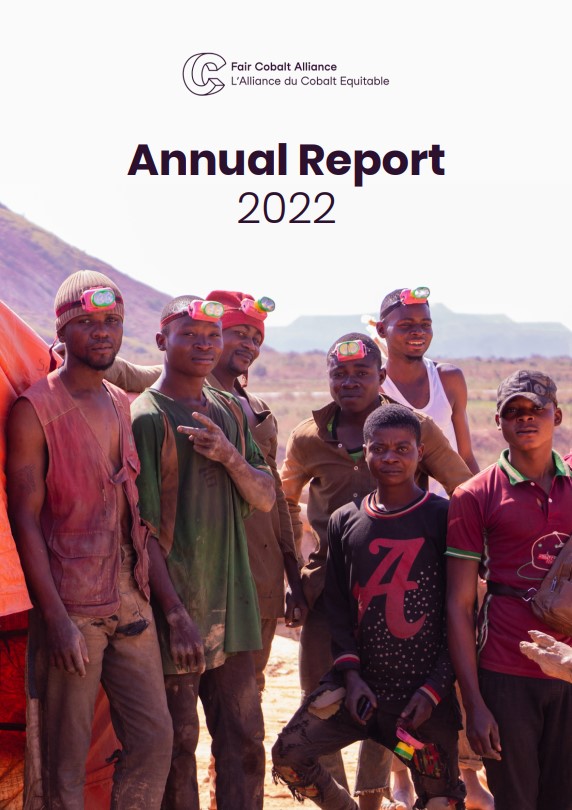
Market volatility does not change the sector’s importance
Against this backdrop, market analysts predict a slight oversupply of cobalt compared to global market demand this year- as many industrial mine sites have brought up production capacity over the last year in response to seemingly insatiable market demand. Even with the resulting price reduction, which is undoubtedly set to have a detrimental impact on artisanal mining occurrence, we still anticipate a growth in the trend of companies trying to engineer cobalt out of their products and find substitutes. However, cobalt will remain a key critical mineral as it helps to extend the number of times a battery can be charged. Plus with global demand set to rise over the coming decade, it is safe to say that artisanal and small-scale mining (ASM) is here to stay and will continue to provide an important share of the global market – and a crucially important livelihood for thousands of people in the DR Congo.
This is why our north star remains the creation of an artisanal cobalt sector consisting of safer mine sites with workers protected with the right personal protective equipment (PPE), limiting fatalities to zero, children working at mine sites taken up into a holistic remediation process run sustainably by local institutions & authorities, cobalt transparently traded, incomes improved – all while ensuring that the rights of mineral producers are upheld and respected. The Fair Cobalt Alliance is committed to the sector in the long term and engages where it is most needed: improving the livelihoods of artisanal miners and enabling responsible cobalt value chains that include, rather than exclude, small producers. To ensure the sustainability of our interventions, we are collaborating closely with Congolese stakeholders and ensuring long-term ownership in the design of programmes and projects on the ground.
2022 – A year that laid the foundations for progress
Launched in August 2020, the FCA remains committed to ensuring an equitable and inclusive development of the cobalt sector in DR Congo. As international stakeholders in the cobalt sector, we seek to support the local and national government and society to ensure their vision of value retention in the local communities. The DR Congo has a unique and significant role in the critical minerals space, holding many of key minerals needed for the energy transition, controlling over 70% of global cobalt production and holding lithium, graphite and copper reserves, to name but a few.
As we enter 2023, we’re excited about the progress we’ve made in the past year. Working in partnership with our local implementing partners and the Mining Cooperative for Social Development (CMDS), the FCA introduced several fruitful projects at our partner artisanal mine site in Kamilombe. These include the launch of “The Hub” – the holistic child labour remediation programme to provide a route away from mining for children working at mine sites. The FCA also launched a PPE provision programme, providing wading boots to women washers. In addition, the FCA facilitated the launch of a savings group project for the mining community surrounding Kamilombe – supporting the financial resilience and economic diversification of the local community. On top of this, the FCA conducted an investment study at Kamilombe, which identified the areas in the mine that need investment to improve and safeguard the overall health and safety of the miners.
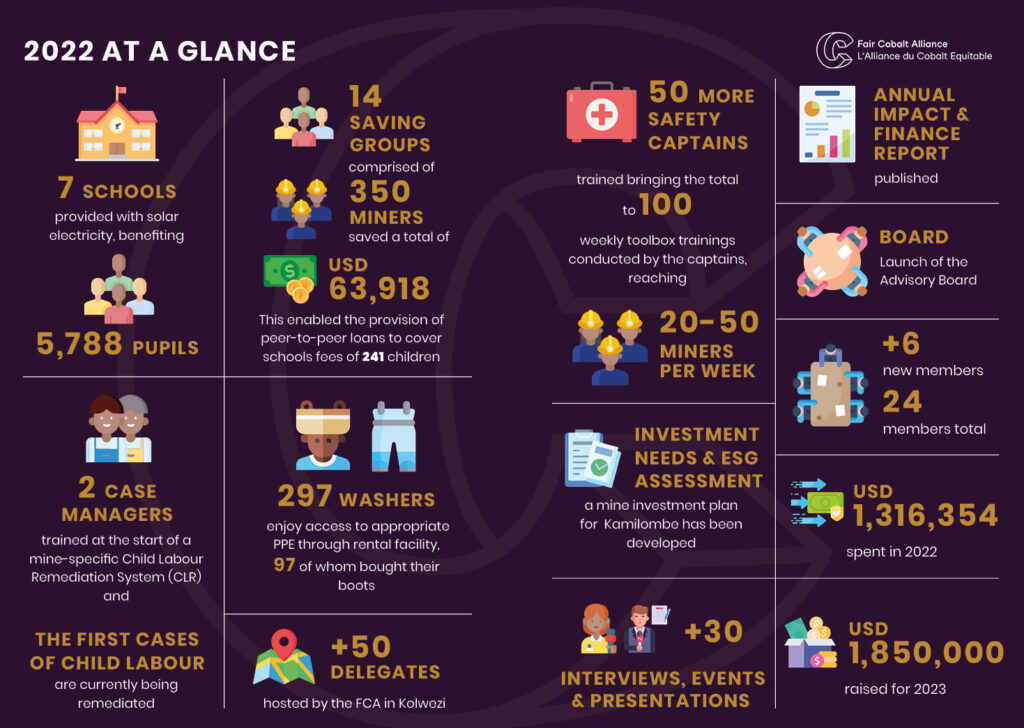
Finally, the FCA strengthened its governance last year, starting with the launch of the 2021 annual impact and finance report, a demonstration of our commitment to transparently communicate our impact, challenges, lessons learnt and finances to ensure full accountability and trust from all stakeholders. Concurrently, the FCA Advisory board was launched, consisting of sector experts providing non-binding advice to our programming. The increased visibility of our work also led to six new companies joining the FCA, growing our membership to 24.
But we are just getting started. There is an immense opportunity to scale the ASM sector, which is already estimated to be worth almost $1 billion as of 2021, but will need to grow considerably if we’re to meet the ambitious climate change goals. At the same time, we recognise that the challenges are big and many. To grasp the opportunity, we need to work jointly with the government and other local partners, and address these challenges in a way that is beneficial to the artisanal miners, their communities and the local economy at large.
Targeted investment is necessary to transform the ASM Cobalt status
To achieve our vision for a safer and fairer artisanal cobalt sector in the DR Congo, the FCA aims to drive further commercial investment into the sector and demand the entire cobalt supply chain takes collective responsibility for the plight of the upstream mineral producers. At the same time, we are working towards bringing responsibly produced ASM cobalt into the formal market – including leveraging the RMI ASM Framework Pilots being launched this year.
We ended the year with a successful delegation visit to the DR Congo, bringing together our members and relevant stakeholders from the government and across the supply chain, providing momentum to our work on the ground and issuing a louder rallying call to action for all those involved. With increased investments and by growing our membership further, our ambition is to scale and replicate successful interventions in other cooperatives. Ultimately, we will keep working towards our vision: to foster collaboration across the value chain, government and society, as well as other partners and initiatives, in order to realise a true transformation of the ASM cobalt sector in the DR Congo.
Angela Jorns, Former Chairwoman of the Steering Committee and Assheton Stewart Carter, Executive Director of the Fair Cobalt Alliance.
Download the Annual Report here.
